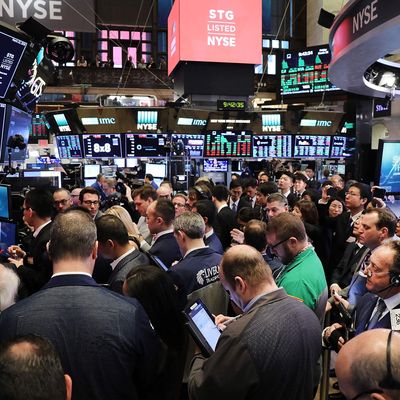
Stock market performance is one of many variables that could at the margins have an impact on the midterm elections this November. But something to keep in mind is that investors typically dislike “political instability” and even uncertainty. So the closer we get to elections that might complicate partisan politics and policy-making in Washington, the more an unsettled landscape could dampen markets and make the unsettling election results more likely, albeit in a small way.
It turns out there’s a historical foundation for this circular pattern of economic and political reinforcement, according to CNBC:
The races for the House and Senate as well as state governorships and legislatures have been a headache for the market going back to World War II.
In the period since, the S&P 500 has declined 2.2 percent in the second quarter and 0.9 percent for the third quarter in midterm election years. Those are the only two negative periods in the presidential cycle, according to Sam Stovall, chief investment strategist at CFRA.
That’s right, in the 16 quarters that make up any four-year period, it’s the two preceding midterm elections — in which the party controlling the White House almost always loses some ground — where losses are concentrated. Clearly investors have come to anticipate political problems for the party controlling the White House. But when that White House is occupied by a president who has all but treated the stock market’s performance as a referendum on his leadership, you might expect significant erosion in the markets to have a greater-than-normal impact on the president’s party.
It’s another thing to watch between now and November.






























